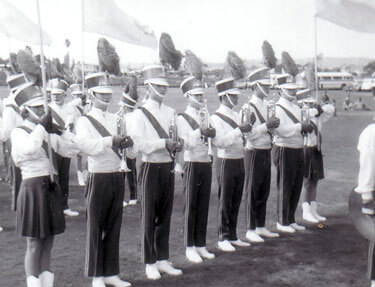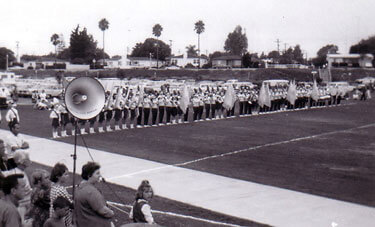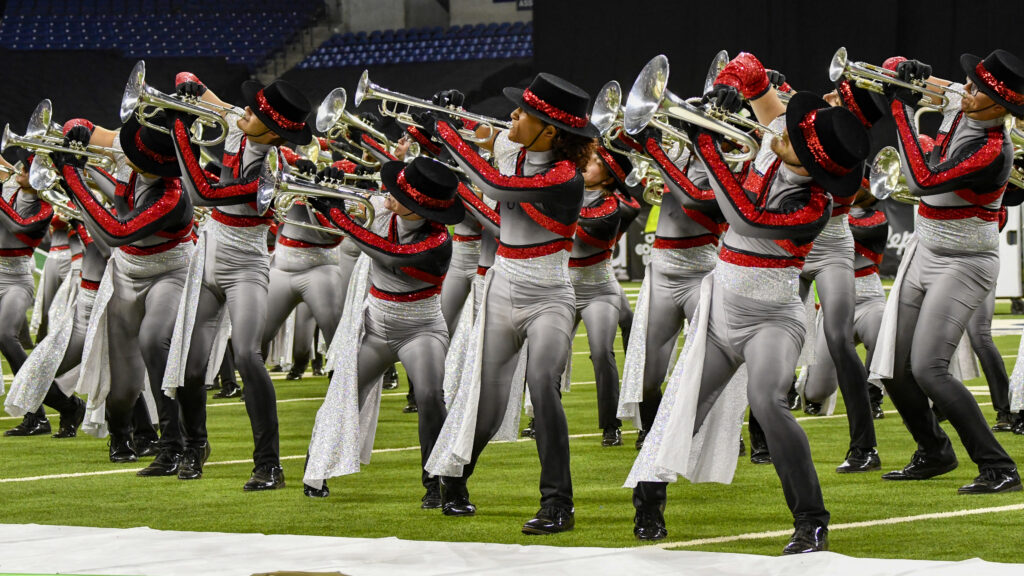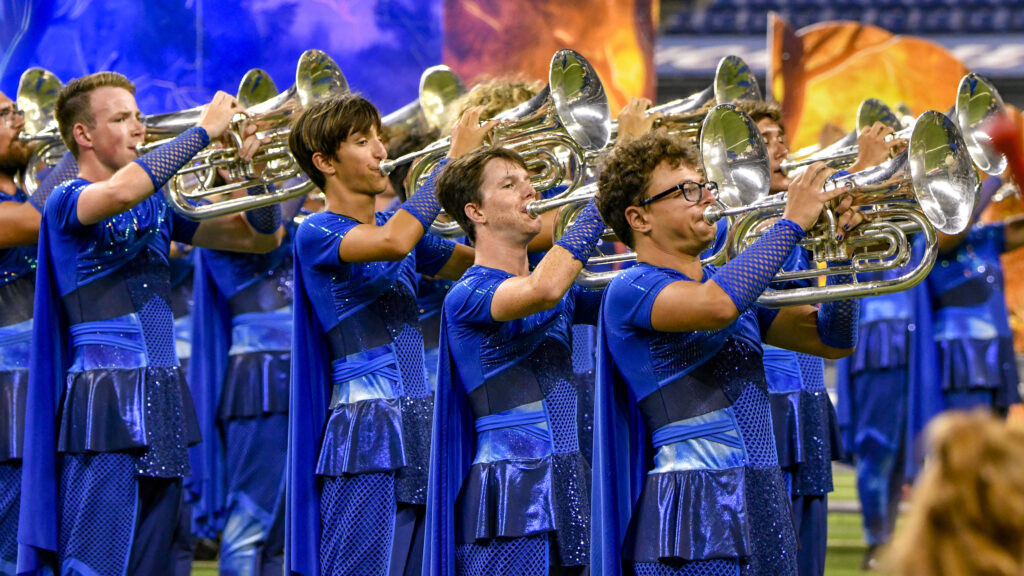Lewis Zingery submitted the following about the Lynwood Diplomats and included some interesting historic photographs which are shared below.
Ron Housley recently submitted a Fanfare article titled “West Coast memories” chronicling his involvement in drum corps in Southern California. He mentioned my corps—the Lynwood Diplomats—and its influence on drum corps in California in the 1960s and 1970s. It brought back events I reflect on regularly.
I marched as a member of the Diplomats from 1964 through 1970. I joined that corps when they were still a “feeder corps” to the Ambassadors, starting on what we then called soprano bugles—the old valve-piston/rotary instruments.

Our dream was to become good enough to make it to the Ambassadors. We were in awe of them after they won first place in the solo and ensemble competition for brass quartets at the pre-Drum Corps International 1966 American Legion Nationals in Portland. However, we decided we had become good enough on our own to break from the Ambassadors, so we did. Eventually, the Ambassadors became inactive, and many of their members joined VK and Kingsmen.
We regularly competed with VK, Kingsmen, Santa Clara Vanguard and many other excellent California corps. One claim to fame that the Diplomats can boast is edging out Vanguard by a tenth of a point at the Kingsmen-hosted show. Admittedly, this was in the Vanguard’s startup days, but hey, we still beat the Vanguard.
Since we all had so much in common, along with the fact that we were within 30 to 40 miles of each other, we all had great friendships with members of those corps. We went to their parties and they came to ours, and there was a crossover of membership. In the final year or two of the Diplomats, (the corps folded in 1972), much of our talent went to the Kingsmen.

Two of our drum line members became drum majors for Kingsmen. One was Earl Douglas (late 1960s) and the other was Jim Goode, who was their drum major when they won the first ever DCI World Championship in 1972. It is my understanding they both are expected to march at Rose Bowl Stadium this August as part of the Kingsmen Alumni Corps, whose members will be putting on an exhibition at the DCI World Championships in Pasadena.
I have shared all of these memories with my son, now 18 years old, but I’m not sure he believes it all—especially the part about our corps beating Vanguard. But I will be giving him a list of about 20 members to look up in the Kingsmen corps this summer for verification, as my son will be competing there as a member of Crossmen’s snare line.
The following was contributed by David Wilson, a member of Auburn, Washington’s Black Watch from 1971 through 1979.
Picking a favorite moment takes some thought and is a trip in the way-back machine!
I started my drum and bugle corps experience as a founding member of the Auburn, Washington Black Watch Highland Regiment in 1971. My father had seen an ad in the local paper that read that there was a drum and bugle corps starting up in the area and they were offering free lessons to drummers.
At the ripe old age of 13, I had just seen the Seattle Shamrocks perform in an early season standstill. With the sound of all that brass in such a small place, with so many drummers, it hurt to sit still, but I just couldn’t move away! The thought of being able to do that (and the word “free”) was enough to set me on a path that still runs today.
My favorite moment in drum corps was the 1978 DCI World Championships in Denver, my second-to-last year as a marching member. I was one of the drum majors for the Black Watch and we had just won the Class “A” World Championship title. We proudly marched in exhibition before the big final show and then rushed back in to watch the battle between Santa Clara Vanguard and Phantom Regiment.
And what a battle it proved to be. The distance between first and second place coming down to a tenth of a point, and the crowd going totally nuts as Santa Clara Vanguard launched into the “Bottle Dance” at the end of “If You Believe,” was incredible. Now that’s how you work a moment!
Editorial assistance by Michael Boo.  Fanfare archives
Fanfare archives





